
Feel free to add tags, names, dates or anything you are looking for
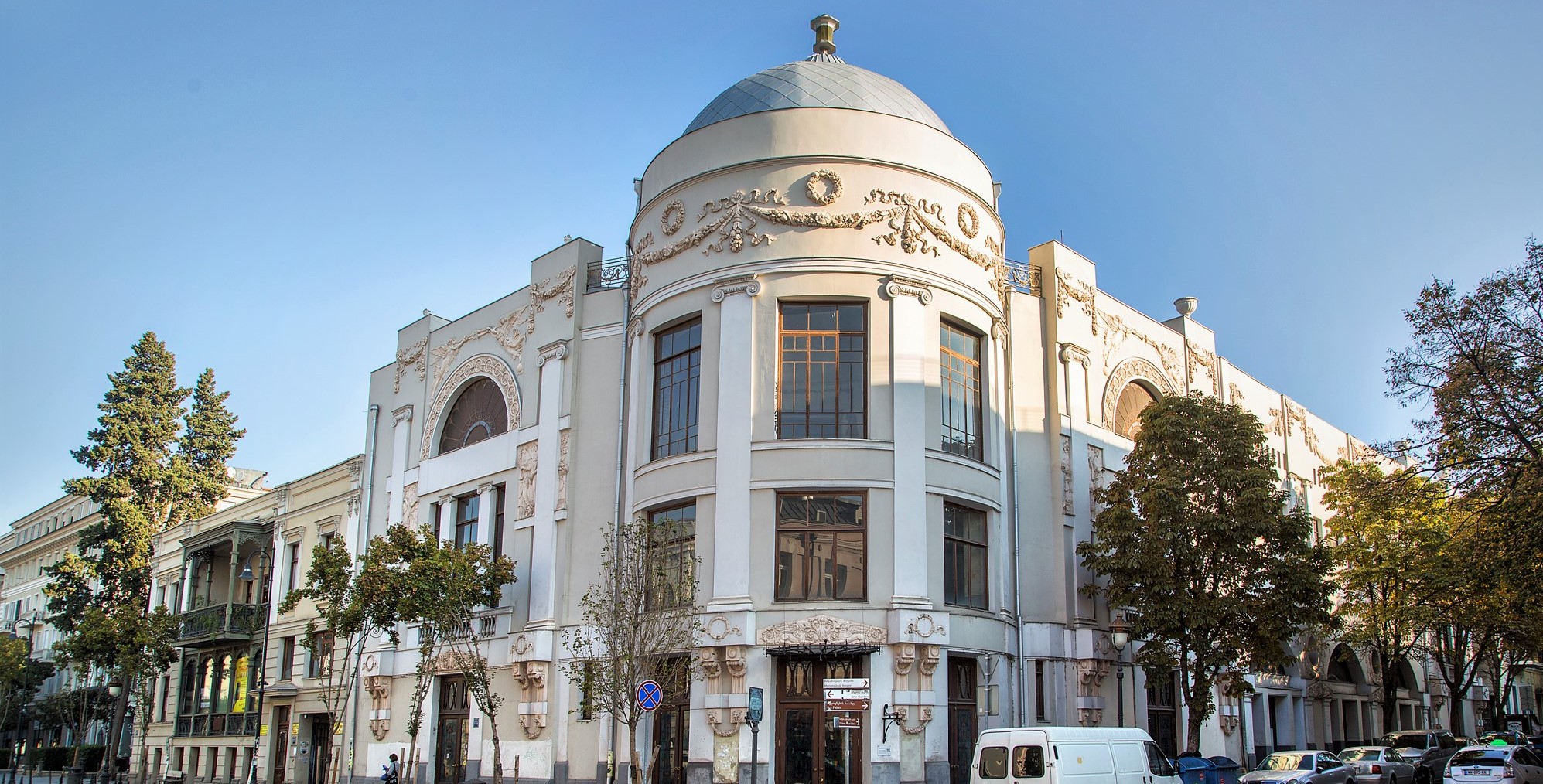

Built in 1909, the Apollo is one of the oldest movie theaters in Georgia, and the only surviving Art Nouveau style cinema in Tbilisi. It was the very first movie theater in the country that was initially built as such, and the building has never changed its purpose, which is quite rare in the history of cinema. For over 80 years the Apollo was a hot spot among film lovers and young inhabitants of the city owing to its beautiful and sophisticated interior, daily screenings and central location. At times it has even served as a film shooting location. In 1918-1919 the Apollo was also home to a small film laboratory belonging to Alexander Dighmelov, pioneer of Georgian cinematography. He used this space to shoot certain episodes of his films, since at that time there were no pavilions.
Located on Aghmashenebeli Avenue (former Plekhanovi) in the old German neighborhood, the Apollo is one of the city’s distinguished works of modernism. It is now on the country’s list of cultural heritage. Towards the end of the 19th century, the arrival of Art Nouveau and the invention of cinema went hand in hand. At that time Art Nouveau buildings were erected in cities throughout Europe, and Tbilisi was no exception. There are no official reports on the identity of the Apollo’s architect, but some sources claim it was Kolchin, a Russian architect. What we do know is that it belonged to a wealthy representative of the German colonists, and the essential craftwork was done by the Czech builders and craftsmen, Novak and Souchek.
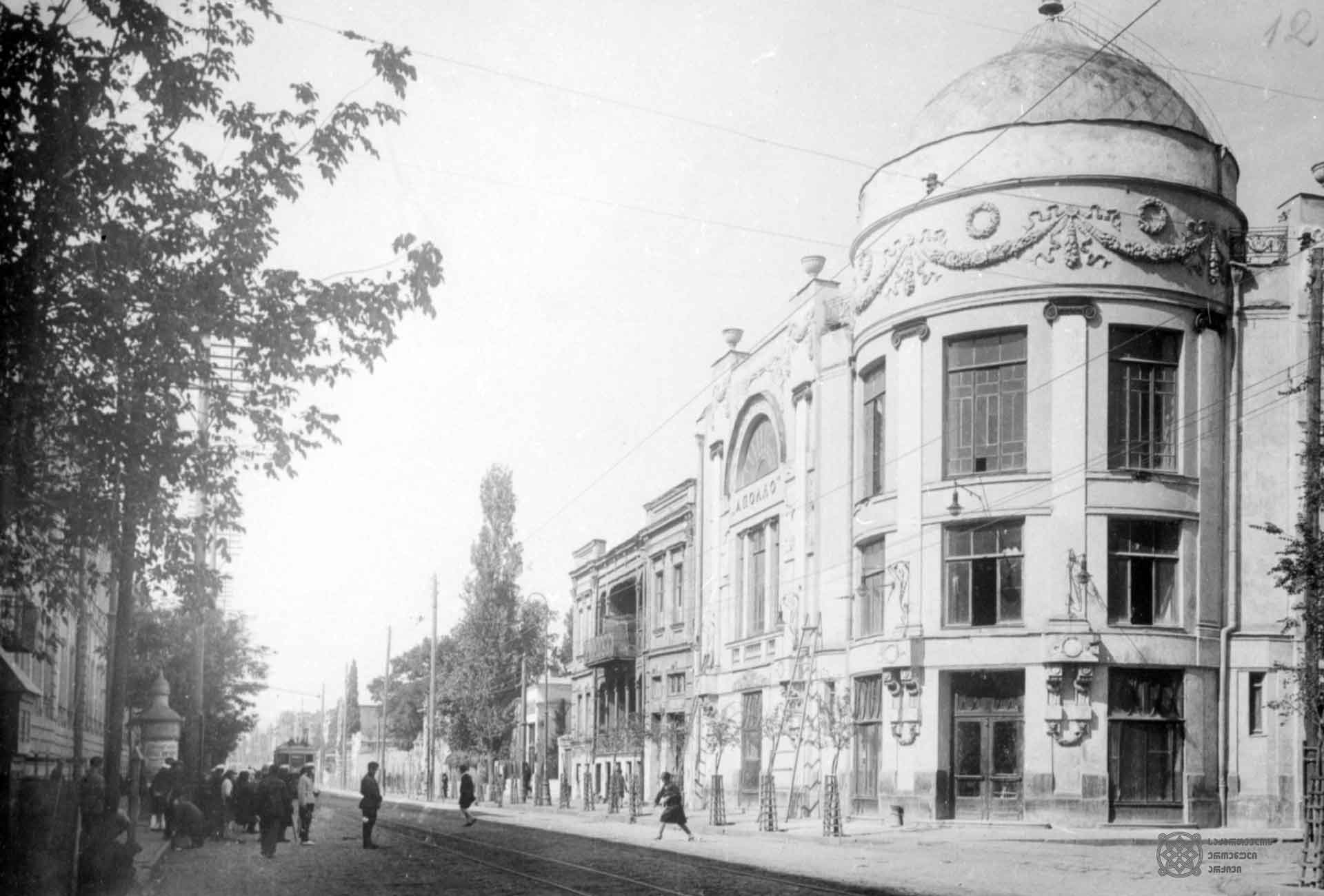
Apollo in the 1950s
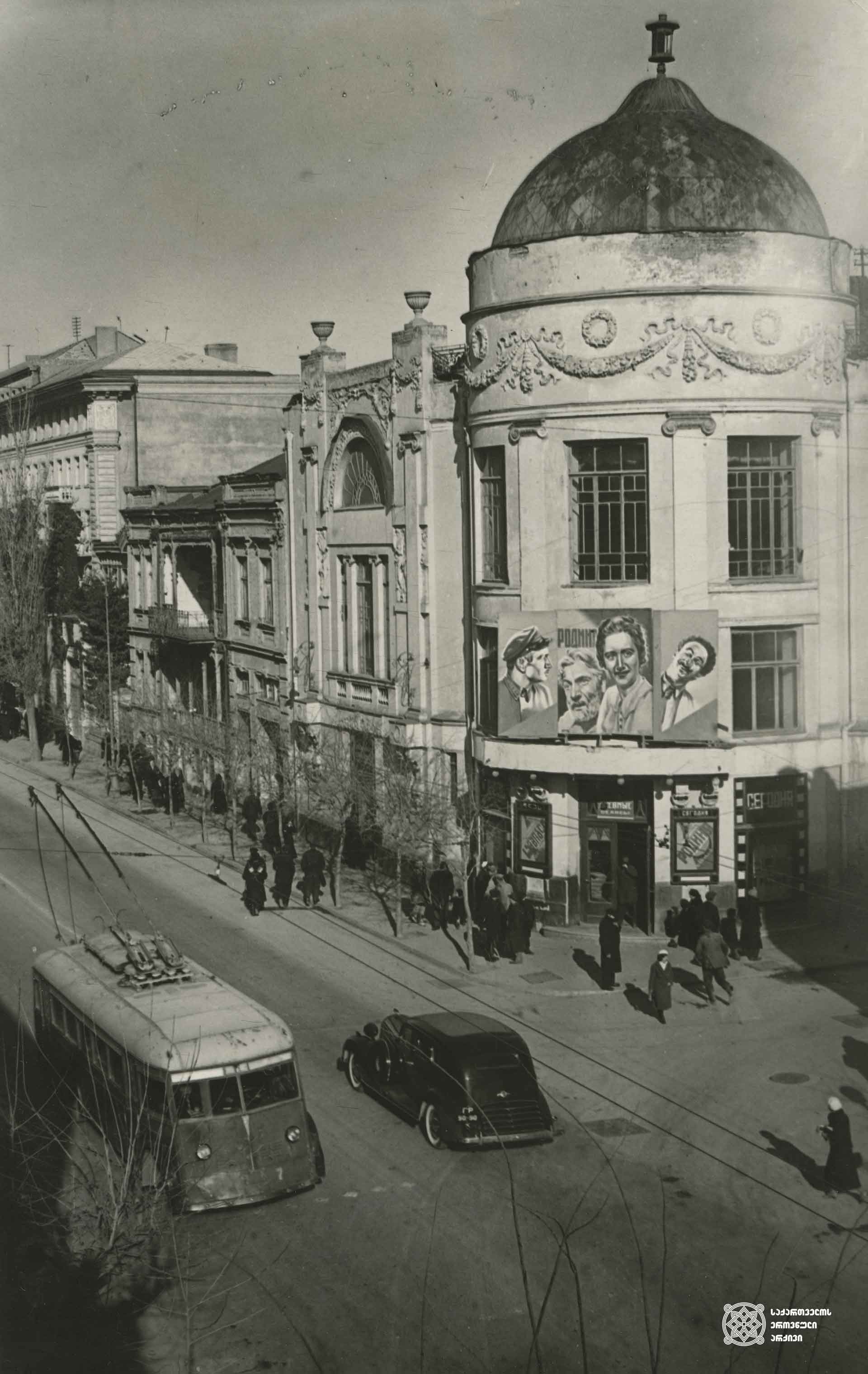
Apollo in the 1950s
Very soon the Apollo had established itself as one of the cultural centers of Tbilisi, attracting more and more people of all ages and backgrounds. Under Soviet rule the cinema was nationalized and became state-owned property. Its name was changed to “October”, in honor of the Great October Socialist Revolution.
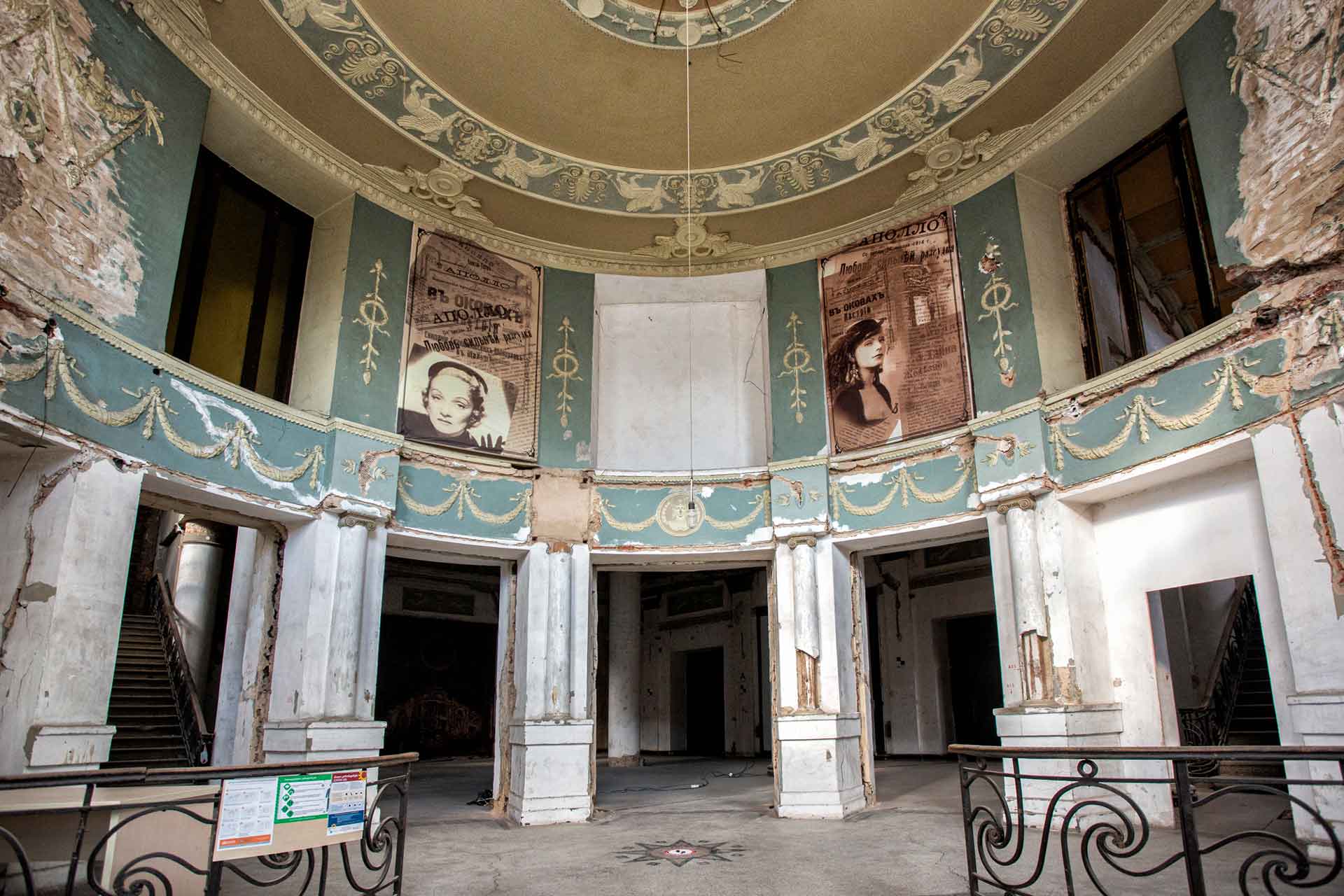
Entrance hall of the Apollo - Photo by Gia Chkhatarashvili
As the film industry was also nationalized and government-supported mass film production was launched, movie theatres became essential venues for spreading communist ideology. The Soviet authorities considered cinema to be one of the best propaganda tools, and their plan was thus to reach as many people as they could. By the 1960s every small town in Georgia possessed its own cinema, while Tbilisi alone already boasted more than 50 municipal movie theatres – many of them located on Plekhanovi Avenue. The Apollo has always been a special venue, regularly offering new films from both Georgia and throughout the world, depending on the accessibility of productions. Every Monday and Thursday new movies would be shown, and if you were lucky enough to get a ticket you could attend a premiere at a very low price.
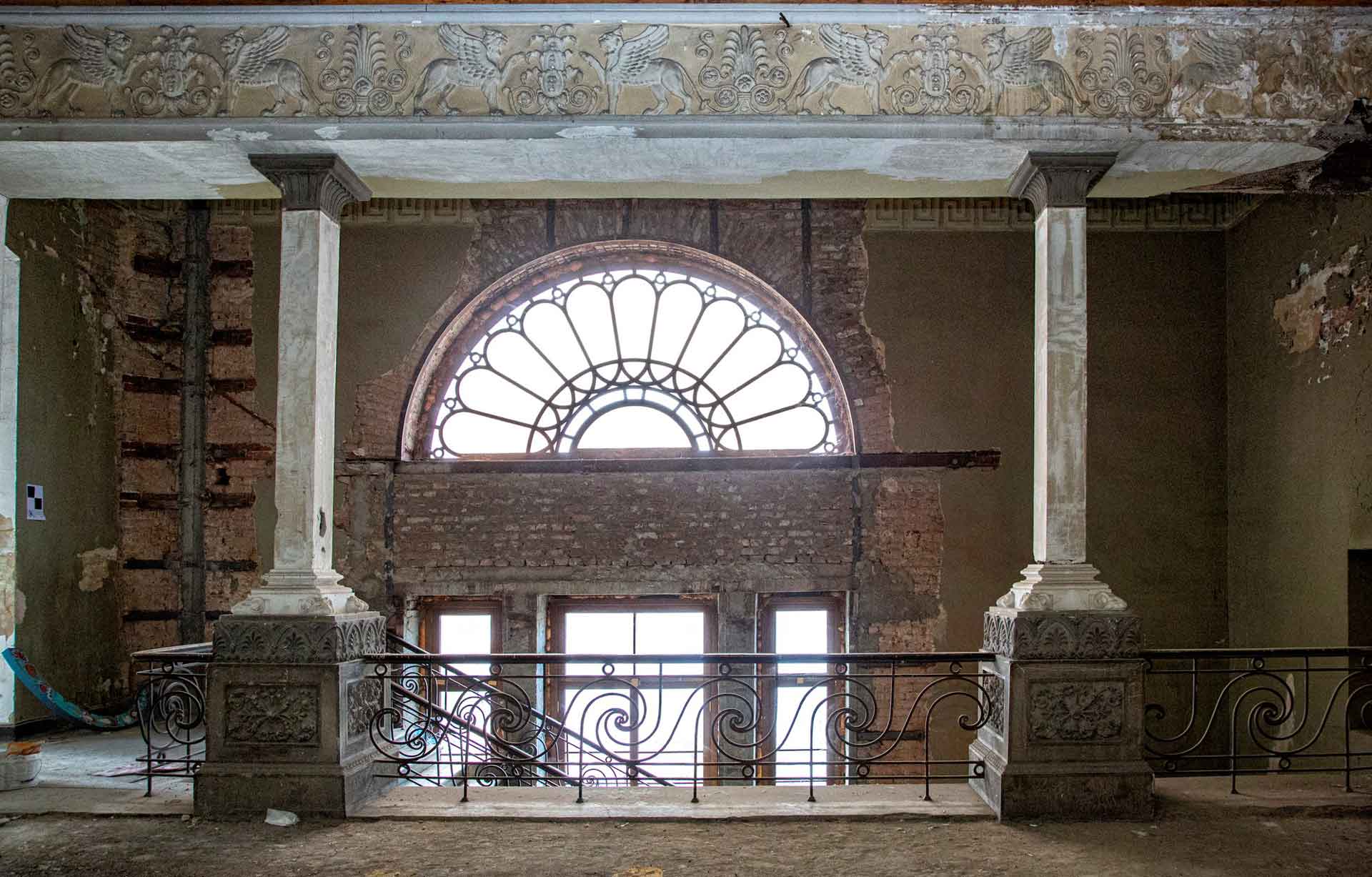
The second floor of the Apollo - Photo by Gia Chkhatarashvili
During Soviet times the Apollo underwent several poorly executed renovations, which resulted in the loss of some of its original details and features. Architect Levan Kalandarishvili walks through the building, recollecting the time when he and his friends had used to come here. He tries to distinguish the original and altered features of the cinema: “All these columns, old ornaments and arched cornices are so impressive that even as you enter the building, you begin to feel festive. You can still find some very old fragments here, but sometimes they would change things in such a way that it’s hard to tell what’s authentic and what’s fake. For instance, these window frames and windows were definitely changed. The wall is curved and I’m sure that the original window frames would also have been curved.”- He observes about the front windows of the second and third floors.
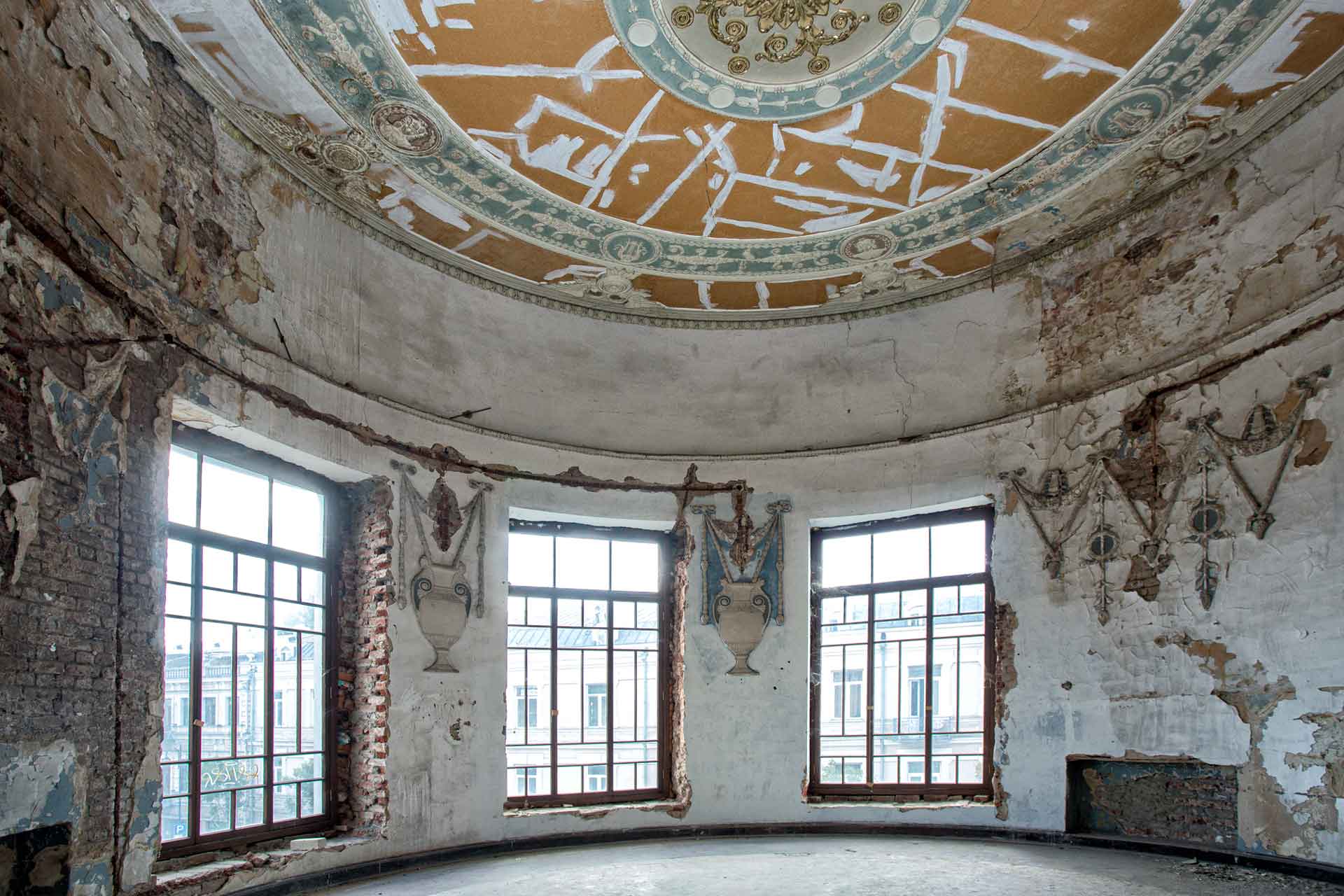
The third floor of the Apollo - Photo by Gia Chkhatarashvili
Niko Lekishvili, former mayor of Tbilisi (1993-95) who has lived near the cinema since childhood and was a regular visitor at the Apollo, recalls why this place was so special: “Here on the third floor there was a small stage where they would hold live performances before the premieres, with various prominent local musicians playing. Nearby was a chill out space with beautiful red padded chairs, where you could relax and have a drink. The building has very good acoustics, and it could also be a perfect place for small live performances”.
Following the disintegration of the Soviet Union and the subsequent economic transformation, municipal cultural spaces were left without financial support from the state. Moreover, in the early 90s Tbilisi was in the midst of civil war, while the country as a whole was suffering a severe social-economic crisis. The Apollo was closed and sold to a private owner. It was later resold several times and to this day remains unopened.
After decades of uncertainty a decision was finally made. In 2019 the owners announced that they wish to restore and reopen the historic movie theater. Their plan is to create a multifunctional cultural center with a cinema, concert and exhibition halls, and cafes. Of course it will no longer be a municipal cinema with easy access and cheap tickets, but at least it‘s not going to be converted into a shopping mall or hotel, as in some other cases. In accordance with laws regarding cultural heritage, the main characteristics of the building’s interior and exterior must be maintained and preserved. The dates and other details of the reconstruction have not yet been decided, but hopefully this historic building and social space will keep its initial function and once more become an important cultural center.